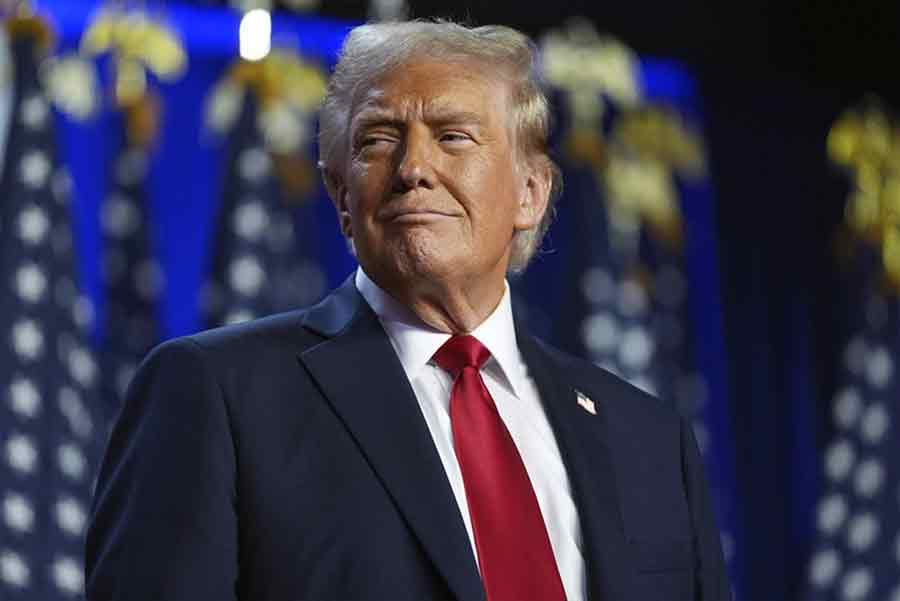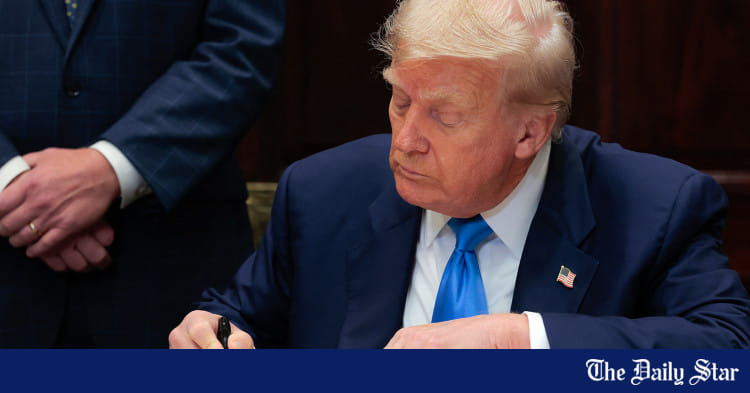Saif
Senior Member
- Joined
- Jan 24, 2024
- Messages
- 16,552
- Likes
- 8,140
- Nation

- Residence

- Axis Group


China to support Bangladesh to counter US tariffs
Yao Wen made the remarks at the “DCAB Talk” organised by the Diplomatic Correspondents Association, Bangladesh (DCAB) at National Press Club in Dhaka on Tuesday.
China to support Bangladesh to counter US tariffs
Diplomatic Correspondent Dhaka
Published: 29 Jul 2025, 22: 36

Chinese Ambassador to Bangladesh Yao Wen addresses the “DCAB Talk” event organised by the Diplomatic Correspondents Association, Bangladesh (DCAB) at National Press Club in Dhaka on 29 July 2025. Collected
Chinese Ambassador to Bangladesh Yao Wen said China views the imposition of tariffs by the United States as part of its effort to expand dominance, and his country will assist Bangladesh to offset the impact of the US’ reciprocal tariffs.
Yao Wen made the remarks at the “DCAB Talk” organised by the Diplomatic Correspondents Association, Bangladesh (DCAB) at National Press Club in Dhaka on Tuesday.
Replying to a query on the US-imposed tariffs, the Chinese ambassador said that China opposes such counter-tariffs. China sees these US measures as part of an attempt to assert hegemony. The imposition of such tariffs undermines the World Trade Organization (WTO) framework and is not conducive to international trade. This is unreasonable, unfair, and unjust, he added.
Ambassador Yao Wen further said China will support Bangladesh under the WTO framework to mitigate the adverse effects of the US’ reciprocal tariffs. He also emphasised the need to expand Bangladesh’s export markets and enhance its export capabilities.
Bangladesh is on track to graduate from the list of Least Developed Countries (LDCs) by 2026. China will continue to provide Bangladesh with duty-free access to 100 per cent of its products until 2028 in order to support this transition,.
DCAB president AKM Moinuddin presided over the event and general secretary Arifuzzaman Mamun delivered the welcome address.
Diplomatic Correspondent Dhaka
Published: 29 Jul 2025, 22: 36
Chinese Ambassador to Bangladesh Yao Wen addresses the “DCAB Talk” event organised by the Diplomatic Correspondents Association, Bangladesh (DCAB) at National Press Club in Dhaka on 29 July 2025. Collected
Chinese Ambassador to Bangladesh Yao Wen said China views the imposition of tariffs by the United States as part of its effort to expand dominance, and his country will assist Bangladesh to offset the impact of the US’ reciprocal tariffs.
Yao Wen made the remarks at the “DCAB Talk” organised by the Diplomatic Correspondents Association, Bangladesh (DCAB) at National Press Club in Dhaka on Tuesday.
Replying to a query on the US-imposed tariffs, the Chinese ambassador said that China opposes such counter-tariffs. China sees these US measures as part of an attempt to assert hegemony. The imposition of such tariffs undermines the World Trade Organization (WTO) framework and is not conducive to international trade. This is unreasonable, unfair, and unjust, he added.
Ambassador Yao Wen further said China will support Bangladesh under the WTO framework to mitigate the adverse effects of the US’ reciprocal tariffs. He also emphasised the need to expand Bangladesh’s export markets and enhance its export capabilities.
Bangladesh is on track to graduate from the list of Least Developed Countries (LDCs) by 2026. China will continue to provide Bangladesh with duty-free access to 100 per cent of its products until 2028 in order to support this transition,.
DCAB president AKM Moinuddin presided over the event and general secretary Arifuzzaman Mamun delivered the welcome address.






































